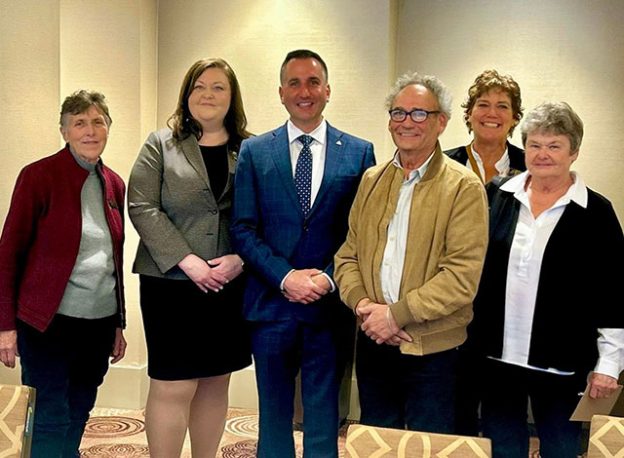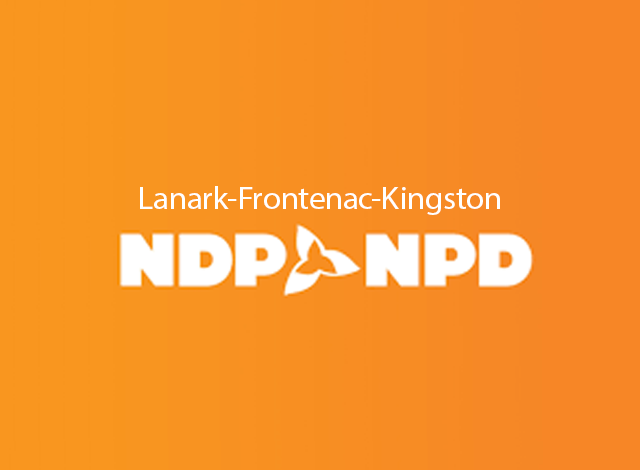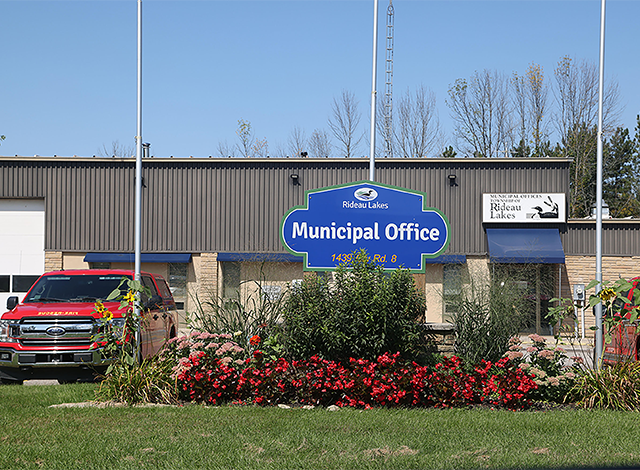SUBMITTED
Last week’s Rural Ontario Municipal Association (ROMA) Conference was highlighted by two successful ministerial delegations for Mississippi Mills Council Members and staff.
The first delegation took place with the Honourable Kinga Surma, Minister of Infrastructure, regarding acquiring the land and building at 2 Industrial Drive in Almonte. The former Land Registry Office, a 4,750 square foot building, has been deemed surplus to the needs of the Ministry of Public and Business Services Delivery. The counter service model was discontinued at all 54 Land Registry Offices across Ontario in October 2020 in favour of online service delivery.
“Over the last decade, we have experienced rapid accelerated growth in Mississippi Mills which is only expected to continue with a 60% population increase projected to 2038,” stated Mayor Christa Lowry. “Historically, Almonte has not been a centre of commerce for services like other urban centres in Lanark County such as Carleton Place or Perth. Although Mississippi Mills has the largest population in Lanark County, we are low in options for space at a time when demand for services continues to increase.”
The process to dispose of provincial lands or buildings is governed by the Ontario Realty Directive and involves an order of circulation be issued to other provincial ministries or agencies and outside government entities. The Directive also states that realty is to be disposed of at market value with the caveat that a business case can be submitted demonstrating how the new use would support provincial interest, if seeking a value below market rate.
Members of Mississippi Mills Council also met with Trevor Jones, Parliamentary Assistant to the Minister of Agriculture, Food and Rural Affairs, the Honourable Lisa Thompson. As an economic development initiative, the Municipality will be undertaking an abattoir feasibility study and have secured $12,000 through the Province’s Sustainable Community Agriculture Partnership Fund, to undertake the Phase 1 market analysis. This work falls under Council’s Strategic Plan Priority: Support a vibrant and prosperous economy.
Access to abattoirs or processing facilities for hog/beef and poultry in Lanark County and the surrounding region is currently insufficient, which impacts the viability and future of our agricultural businesses. We requested this delegation to ensure this critically important initiative is kept in the forefront for the Ministry. Ministry officials indicated their verbal support for our efforts and asked to be kept informed. The Municipality plans to follow-up for additional support as the project progresses.
“Agriculture remains one of the largest economic development drivers in Lanark County and the lack of adequate access to abattoirs is an issue of economic growth, sustainability and food security,” said Mayor Lowry. “Farmers are waiting six to eight months for processing at facilities over an hour away with the consequence being inefficient use of time, increased fuel demands, and complications to herd management and business planning. Local food industry businesses and residents are also impacted as there is little to no access to local, sustainable products.”
The study aims to identify local issues and distinguish if they are systemic or isolated challenges, and also identify potential solutions for producers, butchers, local business and residents seeking to access local products. The Municipality has support for this endeavour from the Lanark Federation of Agriculture, the Ottawa Federation of Agriculture, the Lanark County Beef Farmers Association, local butchers and businesses, and Lanark-Frontenac-Kingston MPP John Jordan.
“Having the opportunity for our elected officials to meet face-to-face with provincial ministries to discuss these critical issues impacting our Municipality was extremely valuable,” explained Tiffany MacLaren, Mississippi Mills’ Manager of Community & Economic Development. “Discussions were positive and productive with contributions coming from both sides of the table. Now it’s our job as municipal staff to continue the work by supporting the provincial staff with the materials and information they require to enact positive change.”
The 2024 ROMA Conference took place January 21-23, gathering nearly 1,900 municipal officials from across Ontario.



















